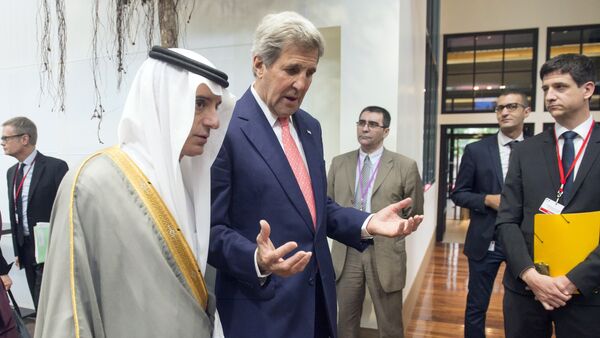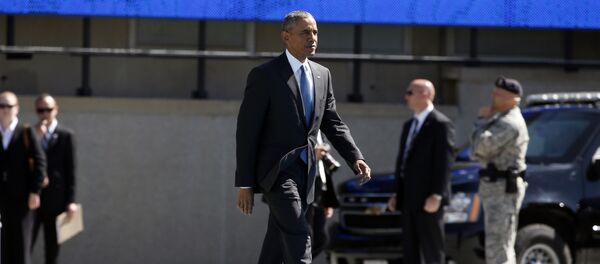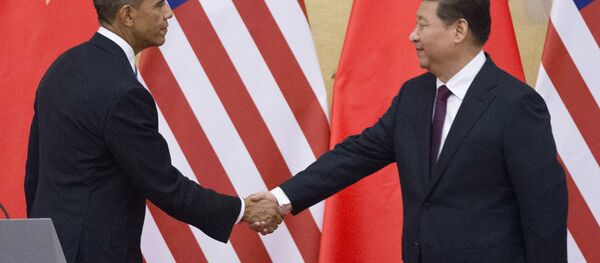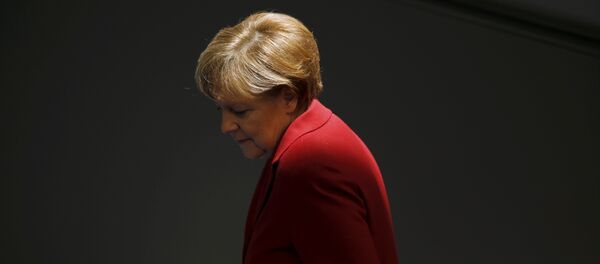Peace talks began in Paris on Friday, led by US Secretary of State John Kerry and UN Secretary General Ban Ki-Moon, with an espoused aim to restart negotiations between Israelis and Palestinians that have repeatedly failed since the Jewish state was established in 1948, in the heart of ancient Arab lands.
The diplomats were joined by representatives from the Arab League, the European Union and several neighboring Arab states, but notably the meeting, designed to reestablish peace talks between Israelis and Palestinians, included no representatives for either of the adversaries.
The Israeli Prime Minister publicly blasted the initiative as his country makes a hard shift toward more aggressive militarism against their Palestinian neighbors. In May, Prime Minister Netanyahu appointed controversial far-right politician Avigdor Lieberman as defense minister to replace the more moderate Moshe Ya’alon. Reacting to the appointment, UN Middle-East envoy Nikolay Maladenov said on Wednesday that Israeli ministers are "killing hope" for peace, following comments by the Israeli Justice Minister Ayelet Shaked, that a Palestinian state will never be allowed.
"As long as we are in the government, there will be no Palestinian state, there will be no settlement evacuations and we will not give any land to our enemies," Shaked said on Tuesday.
The situation for Palestinians has grown more desperate in recent years, with childhood poverty increasing at a near exponential rate, people repeatedly dispossessed of their land and under constant bombardment by Israeli defense forces. The climate of violence and fear has been repeatedly noted as closely resembling the South African regime of apartheid, including remarks by former US President Jimmy Carter.
The Palestinian people have been devastated by efforts by Israeli officials to co-opt their leadership, providing victims with few options to voice their dissent to a global audience about the daily tragedy they endure.
Mass killings of Palestinians by IDF forces have given way to a rash of stabbings in Israel by beleaguered Palestinians. More peaceful approaches, including the Boycott, Divestment and Sanctions (BDS) program advanced by Palestinian leadership have had limited effect on Israel, with the world refusing to cut trade ties with the country and leading to ever-higher levels of poverty in Gaza and the West Bank.
On Thursday, Loud & Clear’s Brian Becker sat down with peace activist Miko Peled and political analyst Soraya Sepahpour-Ulrich to discuss whether the Paris peace talks are about peace or if they are a fig-leaf to justify the status quo of Palestinian displacement.
Do the Paris peace talks have any significance or hope of success?
"Frankly the answer is no," said Sepahpour-Ulrich. "Israel has never been interested in a political solution and the fact that we continue to hold these peace talks, with the first one in 1949, the Lausanne Conference, and many more since 1979."
"This whole thing reminds me of what Desmond Tutu said about the missionaries – 'They had the bible and we had the land, they told us to close our eyes and then they had the land and we were holding the Bible,' and the same thing is true now with these peace talks," she said.
"Nothing ever comes out of these talks and it tends to buy Israel time to further occupy Palestinian land and engage in incremental genocide," stated the analyst. "All of these rounds of talks are just buying more time while the Palestinian land is shrinking and so is the number of Palestinian people."
"If somebody is serious about creating peace then we need more than talk, we need action," she said.
Why is there no focus in these talks on holding Israel accountable for settlements?
"Let me reframe the conversation for a second if I may. I believe that the only way to move forward is to recognize the following: Palestine was occupied in 1948 and a racist, apartheid regime known as Israel was established in Palestine. In 1967, the state of Israel completed that occupation of Palestine by taking a few small parts that it left out in the West Bank and Gaza strip that then calling it Israel, even though we know it is Palestine," said Peled detailing the history of Palestinian displacement.
"The establishment of a single state with exclusive rights for Jewish people has been in place ever since and that is it. This idea that there is a Palestine different from Israel and Israel different from Palestine and that somehow the state of Israel will negotiate with a Palestinian entity for some sort of compromise within this framework is hallucination, it is science fiction," he said.
"The only way to move forward is a complete condemnation of the racist, colonialist project that is called the state of Israel and to get rid of it just like apartheid was done away with in South Africa, with a democracy of equal rights, where Palestinians have all of their rights, the right of return is materialized, and this whole racist, colonialist project is done away with. That is the only way to move forward," stated the activist.
Peled commented that hope for Palestinians will come not through talks, but through resistance, likening their situation to the South African apartheid. The activist praised Palestinian leadership for modeling their Boycott, Divest and Sanctions (BDS) effort on the successful struggle for liberation in South Africa, but considers the situation in the Middle East to be more perilous, with countries around the world refusing to join in solidarity by cutting off trade with Israel.
Sepahpour-Ulrich agreed that the commonplace notion of a two-state solution has always been a false cry for peace, and criticized Europe and the United States for allowing the oppression to continue.
"There is no question in my mind that there is no will to change the status quo, the Europeans and the Israelis and their trade has grown over the years. If you are under the belief that there needs to be a two-state solution or you think that this occupation needs to end, then you freeze your trade, you don’t allow it to grow," she said. "The United States has been funding this occupation, so, what they are doing is giving lip service, and it is just propaganda, they are selling a false truth."
"There is no reality to these peace talks. The world is being lied to," said the analyst. "They are just biding their time to wipe Palestine off the map, which Google incidentally did in one instance."









